#repertoire theatre
Text
#TuesdayBookBlog Give My Regards to Nowhere: A Director’s Tale by Richard Engling (@RichardEngling)
Hi all:
Another discovery thanks to Rosie’s Book Review Team. A hilarious story that I recommend to those who love the world of theatre as much as I do.
Give My Regards to Nowhere by Richard Engling
Give My Regards to Nowhere: A Director’s Tale by Richard Engling
Chicago director Dwayne Finnegan has a long shot at the big time and only two obstacles: himself and everyone he knows.Dwayne’s got…

View On WordPress
#Backstage novel#Chicago#drama#ensemble novel#repertoire theatre#Shakespeare#theatre#Titus Andronicus
0 notes
Note
Hiw was the musical belle!
sgsjdhdjfj haven’t watched it yet technically, but i’m actually seated for it tbh in the theatre rn and waiting for it to play! they’re currently playing trailers
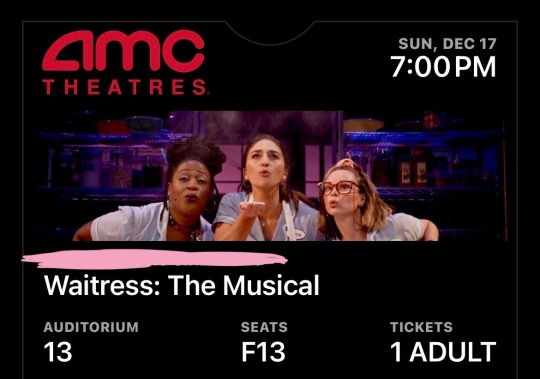
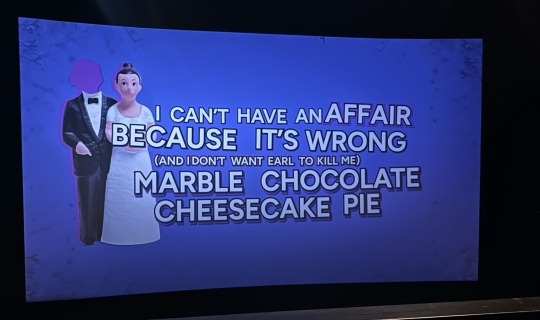
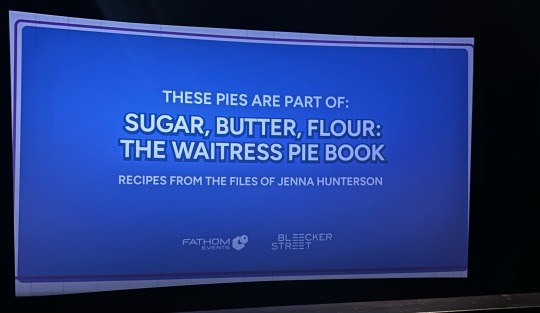
i HAVE seen the musical in person on broadway though, absolute religious experience. thank god there’s only like three other people in the theater and we’re all spaced out cause i’m about to be BAAAAAAWLING
#saw it in new york on broadway with my ex#i think katherine mcphee played jenna when i saw it#almost saw jordin sparks but i think i missed it by like a day or two :((((#anyway i’m walking home from the theatre later in the rain so it’ll give me plenty of time to cry on the way home after#love this musical#two songs are in my audition repertoire#v#anon#belle answers
3 notes
·
View notes
Text
that aa4 music post just gave me some new ideas on the classical musicians au!!
i need to cook!! so bad!!!
*stares at the two lab reports i need to get done*
#random thoughts#kristoph is a man who likes wagner because of his idea of controlling every aspect of music and theatre and art#god i want some more time figuring what the program notes would be for a concert that goes with the plot of aa4-4#would an excerpt of wagner opera be there? would phoenix sneak in a piece from the leipzig conservatoire repertoire?#full on a program on the war of the romantics#would there be a tchaik violin concerto for klavier’s arc#imagine a wagner opera v mendelssohn piano concerto program wouldn’t that be fun#i’m afraid this might not be a classical music world of aa but rather music history parallels in the aa classical musicians au :)#aa classical musicians au
6 notes
·
View notes
Text
!!! e was back today! it turns out that he had covid :(( ik it's awful but ngl i was relieved that he wasn't vacationing with his family 💀💀💀 scream ik ik i'm a horrible person 😭 anyways he had a really cute cardigan on! and he showed us pictures of his new puppy!!!
#i also had to do an orchestra audition thing.#it was ok but the choir teacher is awfully snobbish about repertoire for someone who only does musical theatre...like jfc dude grow up#unfortunately my absolutely vile compsci teacher has also recovered from illness...literally he's been sick like 6 times this year#he should just perish and save us the trouble#ANYWAYS#teacher crush#tc community#tcc#teacher crush community#male tc#tc thoughts
8 notes
·
View notes
Text
there are people in my life who believe that hsm2 is the weakest link when in reality they are

#high school musical#hsm#the film that contributed the highest number of bangers to the repertoire AND the story about class solidarity and white privilege#(not to mention the most DELICIOUS high saturation-high contrast colour grading)#and you have the AUDACITY to act like 3 is the ultimate just bc it's the finale* and you saw it in theatres. violence maim kill bite kill#LITERALLY THE FILM THAT CHOSE (CORRECTLY) TO SPEND ONE FIFTH OF ITS TOTAL SHOOT DAYS *EXCLUSIVELY* ON BET ON IT#this isn't to knock 3 for the record. i want it all and boys are back are iconic and so important to me#I'm just so sick of hearing the 2 slander from these PLEBEIANS#anyway. i have food poisoning and it's 5am. how's your morning going#personal
14 notes
·
View notes
Text
long post re theory pedagogy again
the other thing about that vid (and another thing! lol) being that hierarchically a lot of the people doing the more interesting or out-there research and diversifying the field from a content perspective (and, tbh, demographically) are like grad students or early-career people who don’t even necessarily have any pedagogical flexibility & tend to be slotted in to teach lower-level theory courses-- whose outcomes are predetermined not only by general screwy nasm strictures but by whatever the professor down the line in the curriculum is teaching / expects people to know when they get there. and we get paid (much) less also than tenured professors. which is really a generic “thing about all academia” that doesn’t necessarily become a nefarious personal flaw on the part of said scholars and instead ought to be addressed at a structural level bc the scale of the issue exceeds individual instructors’ spheres of influence.
BUT music occupies such a fucked “totally separate from society” space in many ppl’s imaginations that it’s like oh man how dare it have the same issues as every other field of scholarship bc it shouldn’t “really” be a matter of scholarship in the first place. ie music is culturally rendered a “nothing matters just feel it” / “everything is ephemeral and there is only Innate Talent and nothing can be taught” sort of field such that any intellectualizing thereof &/or suggestion of learnabilty / non-innateness is deemed, like, boring & regressive by some people & i’d say especially people raised with a certain awareness of the “composer-genius” culture of wam education. like i’m completely on the “fuck partwriting parallel fifths are awesome” train as a matter of taste (for example) but that does not mean that learning what parallel fifths are-- and why some old european guys didn’t like them *bc they preferred it to sound like there was more than one voice and it’s easier to create that perceptually w/o an overtone effect* (eg)-- is going to like destroy your artistic Essence and make you a worse musician bc now you’re no longer an empty vessel put on this earth to channel brahms or whoever. & plus i think perpetuating the synonymizing of theory-as-field with wam harmonic rules not only is like factually misrepresentative of current research but also is sort of a self fulfilling prophesy such that ppl who would otherwise have completely fascinating things to say & questions to ask are discouraged from non-platitudinous & open-ended (theoretical) inquiry re the content and aims of their own rep & listening, and tacitly learn that composers’ ~~genius~~ descended from the heavens & you either get it or you don’t, you either “have talent” as a composer or you don’t, et cetera
#Which I Maintain is dangerous not bc i think there is a set method of learning all music(s) obviously but bc that's how you get like#weird essentialism & i'm thinking especially abt anecdotes i've heard re: vocal pedagogy where ppl have been subjected to (...)#racial discrimination; gender discrimination; fatphobia / discrimination based on having or not having a certain 'look' to go w your voice#& told they are 'naturally' inclined to sing or study certain genres of music & shouldn't try anything else (not even ranges! whole genres)#which is maybe sort of tangential but i think stems from this same deal of 'you just have to Feel it' & such#the idea of music as ephemeral and quasi-spiritually channeled such that you lose something if you approach it w scrutiny#or if you have to break it down in a way that; in its detail & precision; reads as divorced from immediate aesthetic judgment#the idea that there's some magic there not to be explained; that composition thus is a special ineffable pursuit for special people. bleh#& the... in depth research and nuance and hesitancy to have a snappy take that like ime culturally describes many theorists. is good#& is; again ime; something valued by several music scholars who sought it out as a Way Out Of a certain brand of meritocratic bullshit#toward a different brand of weird pedantry of course but i think it has its place despite being hooked academically 2 a toxic music culture#in the sense that; for sure; there are egregious issues; but the repertoire bias is unilaterally present in wam circles#& it's like well. your problem is 'with' the textbooks but since when has a so called 'voice degree'#at your average som / public institution without enormous fucking tons of money#unlike idk berklee lol#actually regarded choral singing; musical theatre; art song; rock vocals; et cetera with the same seriousness as a wagnerian opera career#and made a variety of music available from a performance perspective as well. i mean my undergrad was vaguely ok here but On The Whole...#bigger fish re funding in notated-music industry and degrees as job prep for shrinking market etc#anyway though...... i value myself too much to be a youtuber lol#imagine me appending that 'just saying things recreationally' post to this post#carol overreacts to life#theorycomp tag
5 notes
·
View notes
Text
everyone shut up this is ACTUALLY what fans of different composers are like
Mahlerians are PROUD TO BE ABSOLUTELY INSUFFERABLE DRAMA QUEENS, THE LIKES OF WHICH EVEN THE WAGNER CULT COULD NEVER SO MUCH AS ASPIRE TO BE. WE ARE ONE WITH THE UNYIELDING EBB AND FLOW OF THE BOUNDLESS UNIVERSE, DAMN IT ALL!
Shostakovich fans are like Mahler fans except they actually understand what sarcasm is. We also all really like the Muppets for some reason. Most of us own cats and likely have at least one mental illness.
Liszt fans are either tweenagers who love anime or salty old pianists who know a disturbing amount about music theory. These two factions are constantly at war.
Copland fans are either very, very far right or very, very far left. Either way, neither side actually listens to all of Copland's repertoire.
Tchaikovsky fans are either Russian grandmas or LGBT orchestra kids on Tiktok. Either those or the one noob who heard there were cannons once.
Wagner fans. Yes, there are the cringey neo-Nazi Wagnerians, but anti-Nazi Wagnerians are a whole new level of chaotic good. They spend their time dreaming up the most disastrous, chaotic Ring productions possible, with the sole purpose of making Richard Wagner's entire family simultaneously spin in their graves. They take "death of the author" to a whole new level and constantly run on nothing but 100% pure spite. You want a Wagnerian who would beat up Wagner in a Denny's parking lot on your side.
Prokofiev fans will unironically say "ackshually...". That's it.
Dvorak fans are homeschool kids. They're either soul-crushingly innocent or devastatingly horny.
Sousa fans are just high school band directors who try to convince themselves they like Sousa to get through the semester.
Joplin fans constantly argue over whether Joplin's music should be played twice as quickly or twice as slowly than it's actually written. Also sick of hearing about Janis.
Chopin fans are exactly like Liszt fans, except there are 20% more "uwu softboi flowercrown" edits of Chopin than Liszt floating around on Instagram and Tumblr.
Holst fans will drag you into an alleyway and beat you up with their bare hands if you so much as mention The Planets.
Bernstein fans are either horny theatre kids or communists, but it's more likely they're both at once. They are very opinionated about recordings, and express their approval of the ones they like by gyrating excessively to them. If you put a Bernstein fan, a Mahler fan, and a Shostakovich fan in one room, they will either topple a national government or have a threesome.
Ravel fans are inherently Wes Anderson fans. You can be friends with one for years without knowing a single thing about their personality.
Schoenberg fans are like Mahlerians but with worse memes.
Brahms fans are... I have never met a Brahms fan. I'm sure they exist, but I'm pretty sure my own taste in music scares them off.
Paganini fans are almost always TwoSet kids, particularly the ones who try to convince people that "classical music isn't boring because it's basically metal." If you tell them Paganini played viola, they will spontaneously combust.
Rachmaninov fans are ultimately really chill, but are often socially awkward. If you ask a Rachmaninov fan "how are you?", they will most likely respond with "you too."
Schumann fans are Mahlerians on medication.
Stravinsky fans think they're chaotic and unhinged and listen to the most obscure underground shit, but in all actuality they just decided to enter their edgy phase after a lifetime of being sheltered and forced to listen to nothing but Handel by their parents. Possibly homeschooled.
Ysaye fans are like Paganini fans, except they're depressed graduate music students with permanent calluses on their fingers.
Debussy fans go to art school, decide they don't like art school, but have been doing art school too long to turn back, so they can't get out of art school. They may be high on weed at any given moment.
Satie fans are just possessed vessels of Erik Satie. Death cannot hinder Erik Satie. Erik Satie will return to this mortal plane. Search your feelings. You are already Erik Satie.
#classical music#music#composer#composers#mahler#shostakovich#iszt#copland#tchaikovsky#richard wagner#prokofiev#dvorak#sousa#scott joplin#chopin#ysaye#schumann#stravinsky#debussy#satie
594 notes
·
View notes
Text
A Birthday Tribute to Stephen Sondheim
We interrupt your regularly scheduled Diva posts and polls with a 24-hour Stephen Sondheim lockdown to recognize an honorary Broadway Diva and certified musical theatre god.

Stephen Joshua Sondheim (1930) was a legendary composer and lyricist who essentially reinvented the American musical with his soaring scores and fiendishly clever lyrics. With Oscar Hammerstein as his mentor, he began his Broadway career writing lyrics for West Side Story (1957) and Gypsy (1959). Throughout his life, he won eight Tony Awards, including a Special Tony, more than any other composer. His dedicating to writing fascinating, flawed, fantastic roles for women (particularly women of a certain age) means his work is some of the most sought-after of our Divas.
Sondheim Theatre and Concert Credits:
I have done the research and pulled together a list of every single role our Divas have played, and every Sondheim concert they have participated in. Here are just a few takeaways.
All together, 64 Divas have had a whopping 245 roles/concerts and counting.
Eleven Divas have never (to my knowledge) performed in a Sondheim or at a Sondheim-specific concert. Seven of those are non-singing actresses, leaving just four musically-inclined Divas bereft. (Brenda Braxton, Lillias White, Linda Eder, Ute Lemper). However, all four Divas have performed Sondheim's songs in their personal concert repertoires
Eighteen Divas have done just one Sondheim, some in particularly obscure contexts.
The most common roles are The Witch (Into the Woods - 9), Mrs. Lovett (Sweeney Todd - 8), Mama Rose (Gypsy - 8), Desiree Armfeldt (A Little Night Music - 8), Phyllis Rogers Stone (Follies - 6). More on that later.
Most Frequent Sondheim Performers:

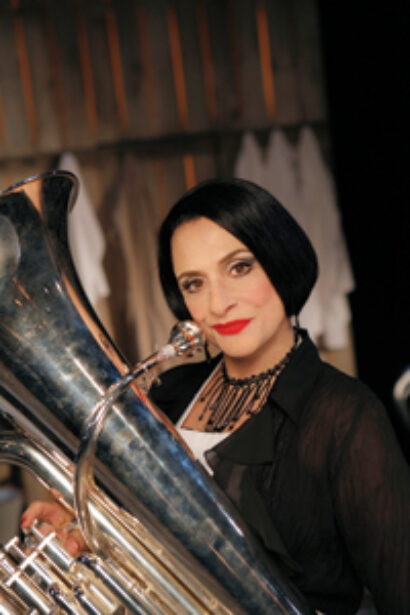

Bernadette Peters: 21
Highlights include: Sunday in the Park with George, Into the Woods, Follies, Gypsy.
Patti LuPone: 20
Highlights include: Company, Sweeney Todd, Gypsy, Anyone Can Whistle.
Marin Mazzie: 13
Highlights include: Passion, Merrily We Roll Along, Into the Woods, Anyone Can Whistle.


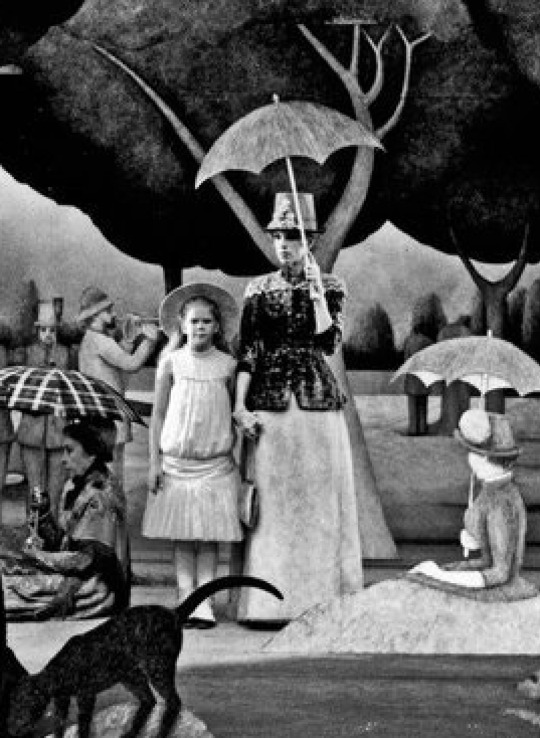
Audra McDonald: 11
Highlights include: Sweeney Todd, Passion, Six by Sondheim, A Little Night Music.
Donna Murphy: 11
Highlights include: Passion, Into the Woods, Anyone Can Whistle, Follies.
Christine Baranski: 11
Highlights include: Company, Sunday in the Park with George, Sweeney Todd, Follies.
Tony Awards and Nominations:
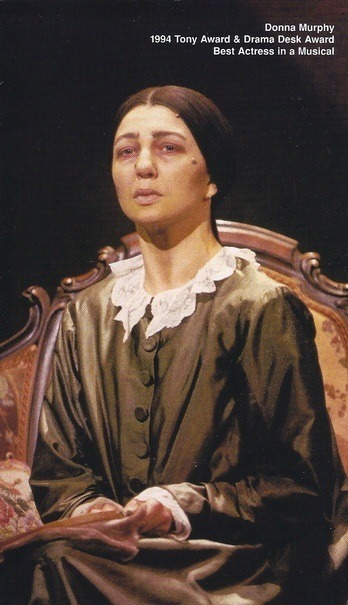

Leading Actress in a Musical:
14 Nominations (exc. wins) | 5 Divas
9 Wins | 4 Divas
Mama Rose in Gypsy is the most-decorated role in musical theatre canon, and arguably the best role for women period. In five productions, every actress has either been nominated (Ethel Merman, Bernadette Peters), or won (Angela Lansbury, Tyne Daly, Patti LuPone).
Both Desiree Armfeldt actresses have won their respective years (Glynis Johns, Catherine Zeta-Jones). Additional winning roles have been Phyllis Rogers Stone (Alexis Smith), Mrs. Lovett (Angela Lansbury), The Baker's Wife (Joanna Gleason), and Fosca (Donna Murphy).

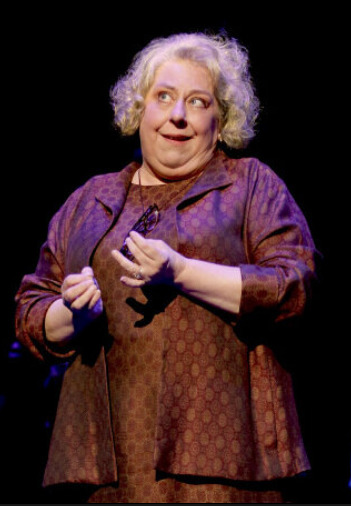
Featured Actress in a Musical:
17 Nominations (exc. wins) | 4 Divas
4 Wins | 1 Diva
Some of the most common roles to be nominated for in a Sondheim show are Amy and Joanne from Company (in the original production, Elaine Stritch competed in Leading Actress), and Louise in Gypsy. No featured role has netted more than one award.
Winners: Patricia Elliott (Charlotte, ALNM), Laura Benanti (Louise, Gypsy), Karen Olivo (Anita, West Side Story), and Patti LuPone (Joanne, Company).
58 notes
·
View notes
Text
[Tarot Game] DatingDoor (21+)
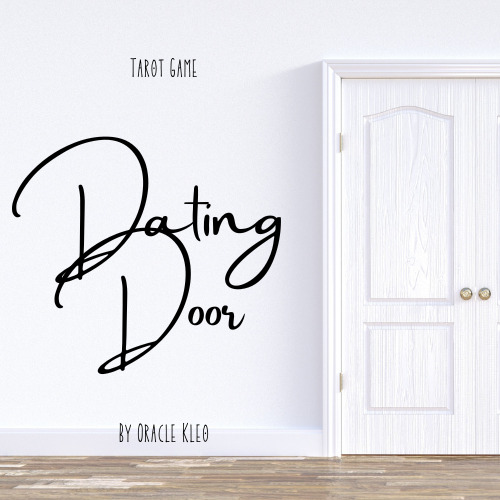
CLOSED
Hello, my dear followers!
I’m back with one more tarot game. This time it’s again a fiction scenario including you and your favourite celebrity. Through a tarot reading I’m going to answer three questions.
🟡 🌹 💖 🟡 🌹 💖 🟡 🌹 💖 🟡 🌹 💖 🟡 🌹 💖 🟡 🌹 💖 🟡
At First Sight = The first impression or vibe you would give when meeting chosen celebrity
Action! = How would your first date with chosen celebrity most likely look like
Seduced by the Moonlight = How could you seduce your chosen celebrity
This reading will tell more about you than the celebrity but it might be a useful insight.
🟡 🌹 💖 🟡 🌹 💖 🟡 🌹 💖 🟡 🌹 💖 🟡 🌹 💖 🟡 🌹 💖 🟡
How to participate:
You and your chosen celebrity should both be 21 years old or older
Follow me
Like and reblog this post + any 2 other tarot reading posts from me
Use Talk to me button or DM me for this one
Name of your chosen celebrity (can be from any part of the globe but has to be a celebrity, they have to be 21+)
State your name or nickname, how should I address you
State your astrological sign
Tell me what kind of fashion you wear the most and feel most comfortable wearing
Give feedback after receiving the reading!
Optional:
1-3 decks from my collection 🔹 Tarot 🔹 Oracle 1 🔹 Oracle 2 🔹 (if you don’t choose deck(s), I will choose them)
Share with me what is your favourite piece of work your chosen celebrity did (song, MV, movie, photoshoot, TV series or drama, theatre play, sports event, etc.)
🟡 🌹 💖 🟡 🌹 💖 🟡 🌹 💖 🟡 🌹 💖 🟡 🌹 💖 🟡 🌹 💖 🟡
No anon asks. If you want the reading to be private, send your request to my DM.
🟡 🌹 💖 🟡 🌹 💖 🟡 🌹 💖 🟡 🌹 💖 🟡 🌹 💖 🟡 🌹 💖 🟡
Disclaimer:
There is no deadline. I will answer as promptly as possible for me.
There is no declared word count. I will give you the message I can see in the cards.
This game will be open as long as the number of requests isn’t overwhelming. I might close the game temporarily but all of my games are a permanent part of my repertoire.
All my tarot readings are for entertainment purposes only.
I don’t know any celebrity personally, this tarot reading describes a purely hypothetical scenario and should be treated as fanfiction.
The messages may be 18+ if the cards convey such a scenario
What tarot says is not set in stone, you have your life in your hands and you can choose to ignore or disobey the suggestions cards give.
🟡 🌹 💖 🟡 🌹 💖 🟡 🌹 💖 🟡 🌹 💖 🟡 🌹 💖 🟡 🌹 💖 🟡
I can’t wait for your requests!
Have a fabulous day!
Oracle Kleo
Check out more games -> Tarot Games 🎲
#oracle kleo#free tarot readings#free tarot#tarot messages#tarot#tarotblr#tarot blog#tarot games#free love reading#love tarot#free love tarot#kpop tarot#kpop#kpop smut#kpop imagine#kpop scenarios#celebrity tarot#tarot community
76 notes
·
View notes
Text
I think tsukasa is a normie sorry. He does not know memes or internet trends he’s too busy scouring the internet for bootleg theatre productions and practicing facial expressions in the mirror. Guy who could tell you everything you need to know about some obscure actor/play from 100 years ago but does not know a single modern celebrity if they’re not involved in acting. He’s adding new poses to his vast repertoire he is not making banger posts online. “Based? Based on what?” Type of guy.
#nene is the most internet poisoned wxs member and she is not sharing that info with tsukasa#rui is also somewhat online but I feel like he’d mostly be on Wikipedia clicking all the links on an article for a soup#<- also the kind of guy to be watching videos on the most obscure topics just for fun#emu is untainted by the sins of modern internet she is just watching funny pet videos online#i do however think rui would teach tsukasa memes so that tsukasa can misuse them on purpose to annoy nene#sliding scale of nene in middleschool getting into heated online discourse vs tsukasa going ‘that’s boring I’m logging off’#would like to amend that actually I think tsukasa would see a bad take on one of his favorite actors and get into a 5 day long argument#online on some random barely used Internet forum until the mods were like ok we’re locking this thread every1 shut up#mine#project sekai
38 notes
·
View notes
Text
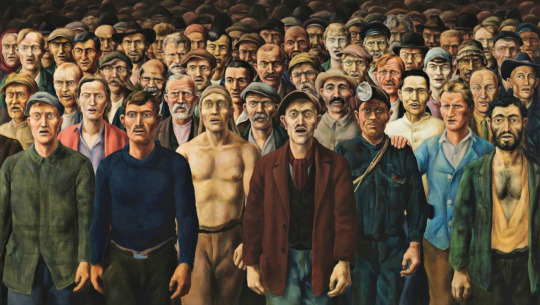
Otto Griebel - "The Internationale" - circa 1929.

Otto Griebel - "Factory Workers on Their Way Home" - circa 1922.
Watercolor over pencil on smooth wove paper. Hard Times: Germany 1920s – 1930s - Series
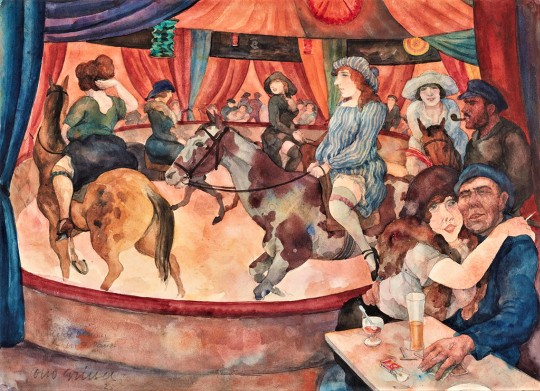
Otto Griebel - "Hippodrome in St. Pauli" - circa 1923.
Otto Griebel was a German artist who was born in 1895. He was the co-founder of the Association of Revolutionary Visual Artists of Germany & the New Dresden Secession.

Otto Griebel - Self Portrait
In 1920, he founded together with the musician Otto Kunze a puppet theatre (glove puppets) in Dresden. Its repertoire included a puppet cabaret, an adaptation of Faust and of Richard Wagner’s Lohengrin entitled Der Lohntütengrien. Besides political satire, he cultivated “nonsense”, for which, as a former Dadaist, he had an affinity. The verses of his friend, Joachim Ringelnatz provided material for this part of the program.
In 1933, he was arrested by the Gestapo and his paintings were branded as degenerate art.
His painting (below) "Child at a Table" branded as degenerate art, was one of the artworks found in the 2012 Munich artworks discovery (Munich Art Hoard).

Degenerate Art also was the title of a 1937 exhibition held by the Nazis in Munich, consisting of 650 modernist artworks that the Nazis had taken from museums, that were poorly hung alongside graffiti and text labels mocking the art and the artists.

Joseph Goebbels views the Degenerate Art Exhibition.
The collection of "Degenerate Art" contained Old Masters as well as Impressionist, Cubist, and Expressionist paintings, drawings and prints by artists including Claude Monet, Pierre-Auguste Renoir, Paul Cézanne, Paul Gauguin, Henri Matisse, Eugène Delacroix, Edgar Degas, Henri de Toulouse-Lautrec, Franz Marc, Marc Chagall, Édouard Manet, Camille Pissarro, Auguste Rodin, Otto Dix, Edvard Munch, Gustave Courbet, Max Liebermann, Wassily Kandinsky, and Paul Klee, among many others.
#art#paintings#mixed media#Munich Art Hoard#degenerate art#facism#Otto Griebel#watercolor#Child at a Table#portraits#Hippodrome in St. Pauli#Factory Workers on Their Way Home#the internationale
59 notes
·
View notes
Text

Renata Shakirova became the prima ballerina of the Mariinsky Theatre
Among her roles are the main parts of the classical ballet repertoire: Odette-Odile, Princess Aurora, Nikiya, Giselle. Recently, Renata made her debut with great success in new productions of the Mariinsky Theater — "Anyuta", "Wonderful Mandarin", "12" and "Fairy Kiss".
Photo: Ballet "Shurale" (Syuimbike), choreography by Leonid Yakobson
23 notes
·
View notes
Text
An imaginary repertoire for my imaginary theatre that specializes in musicals about and based on various accidents, catastrophes and other terrifying events
Pre-existing works:
Titanic
M/S Estonia (the Finnish play with songs)
Zeppelin (the German musical)
Floyd Collins (the 1996 Off-Broadway musical)
Everest (the 2015 opera about the 1996 incident)
Ride the Cyclone
Come From Away
Disaster!
Cannibal! The Musical
Tailor-made new works:
Titanic (by Frank Wildhorn)
Nutty Putty Cave! A New Musical (I first thought this would also be by Frank Wildhorn, but on second thought, I think literally anyone else would be better equipped to handle this. so, by Dave Malloy)
The Great Molasses Flood (an opera)
Vasa 1628 (maybe this should be a ballet?)
41 notes
·
View notes
Text



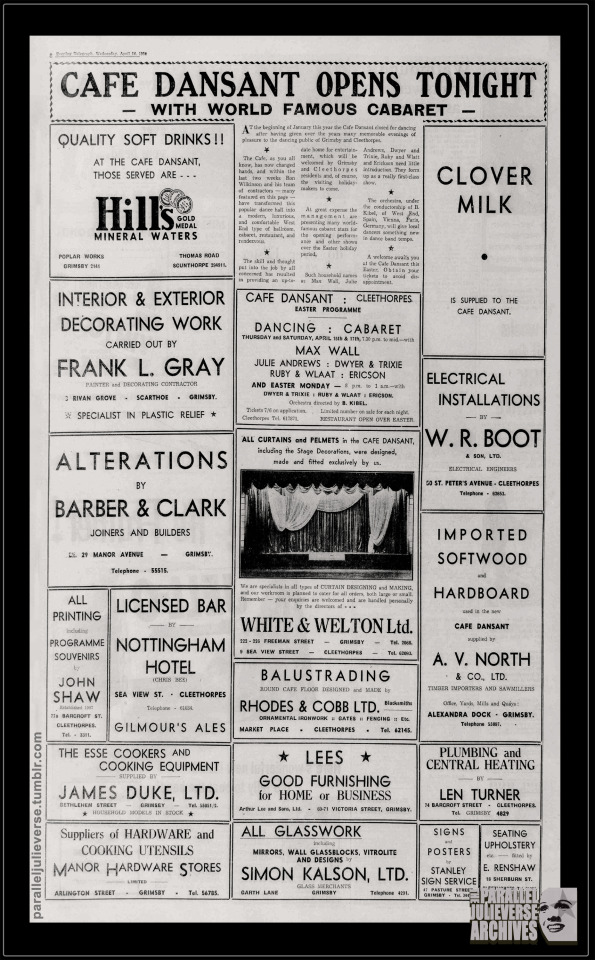
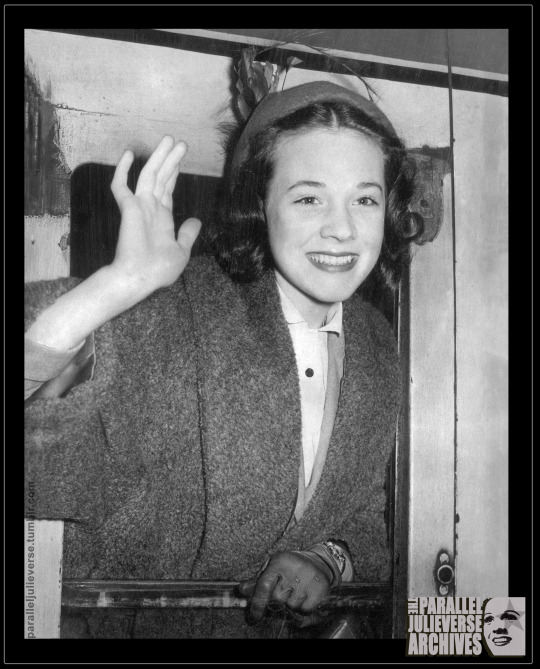
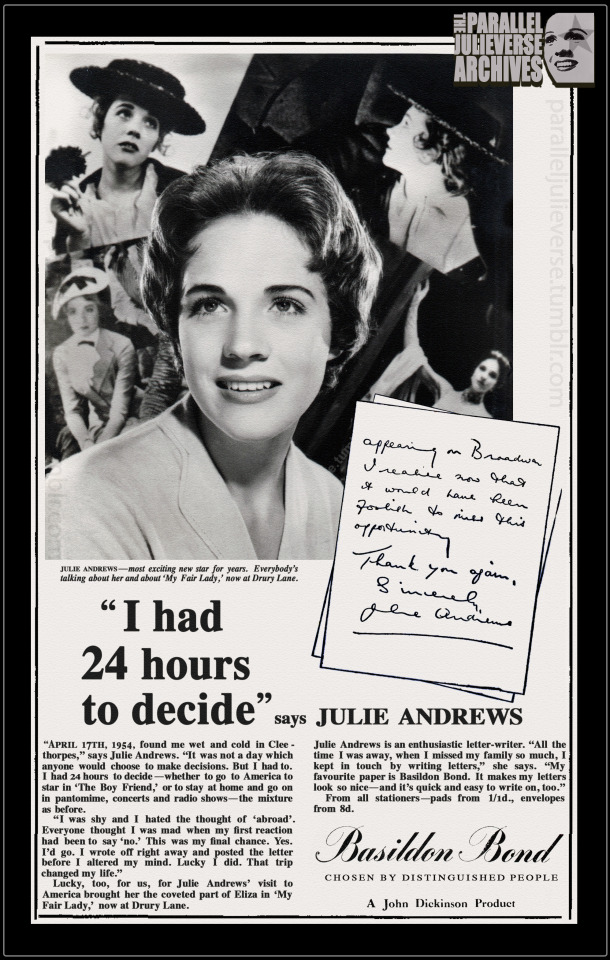
Come taste the wine... : 70th anniversary of Julie Andrews's 'cabaret debut' at the Café Dansant, Cleethorpes,
3 performances
Easter, 14-17 April, 1954
This week, seventy years ago, Julie Andrews made her official 'cabaret debut' at the Café Dansant in Cleethorpes. While not a major milestone in the traditional sense -- and one that seldom features in standard Andrews biographies -- the Cleethorpes appearance was nevertheless a significant event in the star's early career.
For a start, it was Julie's first appearance in cabaret -- the theatrical genre that is, not the Broadway musical which is a whole other Julieverse story. Characterised by sophisticated nightclub settings with adult audiences watching intimate performances, cabaret emerged in fin-de-siècle Paris before expanding to other European cities such as Berlin and Amsterdam (Appignanesi, 2004). Imported to Britain in the interwar years, cabaret offered a more urbane, adult alternative to the domestic traditions of English music hall and variety with their family audiences and jolly communal spirit (Nott, 2002, p. 120ff).
Julie's debut in cabaret was, thus, a significant step in her professional evolution towards a more mature image and repertoire. By 1954, Julie was 18, and well beyond the child star tag of her earlier years. Under the guidance of manager, Charles Tucker, there was a calculated strategy to reshape her stardom towards adulthood.
The maturation of Julie's image had begun in earnest the previous summer with Cap and Belles (1953), a touring revue that Tucker produced as a showcase for Julie, comedian Max Wall, and several other acts under his management. Cap and Belles afforded Julie the opportunity to shine with two big solos and a number of dance sequences. Much was made in show publicity of Julie's new "grown up" look, including the fact that she was wearing "her first off-the-shoulder evening dress" ('Her First Grown-Up Dress', 1953, p. 4).
The Cleethorpes cabaret was a further step in this process of transformative 'adulting'. Indeed, it was something of a Cap and Belles redux. Not only was Max Wall back as headline co-star, Julie even wore the same 'grown up' strapless evening gown. In keeping with a cabaret format, though, Julie was provided a longer solo set where she sang a mix of classical and contemporary pop songs including "My Heart is Singing", "Belle of the Ball", "Always", and "Long Ago and Far Away" ('Cabaret opens', 1954, p. 4).
That Julie should have chosen Cleethorpes for her cabaret debut might seem odd to contemporary readers. Today, this small town on the north Lincolnshire coast is largely regarded as a somewhat faded, out-of-the-way seaside resort. In its heyday of the mid-twentieth century, however, Cleethorpes was a vibrant tourist hub that attracted tens of thousands of holidaymakers each year (Dowling, 2005). With several large theatres and entertainment venues, Cleethorpes was also an important stop in the summertime variety circuit, drawing many of the era’s big stars and entertainment acts (Morton, 1986).
The Café Dansant was one of Cleethorpes' most iconic nighttime venues, celebrated for its elegant suppertime cabarets and salon orchestras. Opening in the 1930s, the Café was a particularly popular haunt during the war and post-war era when servicemen from nearby bases danced the night away with locals and visiting holidaymakers to the sound of touring jazz bands and crooners (Dowling, 2005, p. 129; Ruston, 2019).
By 1954, the Café was starting to show its age, and incoming new management decided to shutter the venue for several months to undertake a luxury refurbishment (‘Café Dansant closed', 1954, p. 3). A gala re-opening was set for the Easter weekend of April 1954, just in time for the start of the high season (‘Café Dansant opens', 1954, p. 8).
Opening festivities for the Café kicked off with a lavish five hour dinner cabaret on the evening of Wednesday, 14 April. Julie was “one of the world famous cabaret stars" booked for the gala event, and she received considerable promotional build-up in both local and national press (‘Café Dansant opens', 1954, p. 8). There was even a widely circulating PR photo of Julie boarding the train to Cleethorpes at London's Kings Cross station.
In the end, Max Wall was unable to appear due to illness, and Alfred Marks -- another Tucker artist and former variety co-star of Julie's (Look In, 1952) -- stepped in at short notice. Rounding out the bill were several other minor acts, including American dance duo, Bobby Dwyer and Trixie; novelty entertainers, Ruby and Charles Wlaat; and magician Ericson who doubled as cabaret emcee.
Commentators judged the evening a resounding success. The "Cafe Dansant has got away to a flying start, after probably the biggest opening night ever seen in Cleethorpes," effused one newspaper report (Sandbox, 1954, p.4). Special mention was made of Julie who “received a great reception when she sang a selection of old and new songs, accompanied at the piano by her mother” (‘'Café Dansant reopening’, 1954, p. 6).
Following her performance, Julie joined the Mayor of Cleethorpes, Mr Albert Winters, in a cake-cutting ceremony and mayoral dance. Decades later, Winters recalled how he still “savour[ed] the memory of snatching a dance with the young girl destined to be a star… [S]he seemed very slim and frail,” he reminisced, “but she was a great dancer and I thoroughly enjoyed myself” (Morton, 1986, p. 15).
Julie stayed on in Cleethorpes for two more performances on Thursday 15 and Saturday 17 April respectively, before returning to London with her mother on Easter Sunday, 18 April. The very next day she commenced formal rehearsals for Mountain Fire, Julie's first dramatic 'straight' play and another step in her professional pivot to more adult content (--also, time permitting, the subject of a possible future blogpost).
A final noteworthy aspect about the Cleethorpes appearance is that it was during this weekend that Julie made the momentous decision to go to America to star in The Boy Friend. In what has become part of theatrical lore, Julie had been offered the plum role of Polly Browne in the show's Broadway production sometime in February or March of 1954 while she was appearing in Cinderella at the London Palladium. To the American producers’ astonishment --- and manager Tucker’s horror -- Julie was initially reluctant to accept, fearful of leaving her home and family. She prevaricated for weeks. Finally, while she was in Cleethorpes, Julie was given an ultimatum and told she had to make her decision.
In her 1958 serialised memoir for Woman magazine, Julie recounts:
“Mummie and I went to Cleethorpes to do a concert. It was a miserable wet day. From our hotel I watched the dark sea pounding the shore with great grey waves. I was called to the downstairs telephone.
“Julie,” said Uncle Charles [Tucker]‘s voice from London, “they can’t wait any longer. You’ll have to make your mind up NOW.”
I burst into tears.
“I’ll go Uncle,” I sobbed, “if you’ll make it only one year’s contract instead of two. Only one year, please.” …
Against everyone’s judgment and wishes I got my way…None of us knew that if I’d signed for two [years], then I should never have been free to do Eliza in My Fair Lady. And never known all the happiness and success it has brought me” (Andrews, 1958, p. 46).
The Cleethorpes ultimatum even found its way into an advertising campaign that Julie did for Basildon Bond stationery in 1958/59, albeit with the telephone call converted into a letter for enhanced marketing purposes. Framed as a choice between going to America and the “trip [that] changed my life” or staying at home in England “and go[ing] on in pantomime, concerts, and radio shows—the mixture as before,” the advert highlighted the “sliding door” gravity of that fateful Cleethorpes weekend (Basildon Bond, 1958). What would the course of Julie's life been like had she said no to Broadway and opted to remain in the UK?
It is a speculative refrain that Julie and others have made frequently over the years. “If I’d stayed in England I would probably have got no further than pantomime leads,” she mused in a 1970 interview (Franks, 1970, p. 32). Or, more dramatically: “Had I remained in London and not appeared in the Broadway production of The Boy Friend…who knows, I might be starving in some chorus line today” (Hirschorn, 1968).
In all seriousness, it's doubtful that a British-based Julie would have faded into professional oblivion. As biographer John Cottrell quips: "that golden voice would always have kept her out of the chorus” (Cottrell, 1968, p. 71). Nevertheless, Julie's professional options in Britain during that era would have been greatly diminished. And she certainly wouldn't have achieved the level of international superstardom enabled by Broadway and Hollywood. Who knows, in a parallel 'sliding door' universe, our Julie might have gone on playing cabarets and end-of-pier shows in Cleethorpes...
Sources
Andrews, J. (1958). 'So much to sing about, part 3.' Woman. 17 May, 15-18, 45-48.
Appignanesi, L. (2004). The cabaret. Revised edn. Yale University Press.
Basildon Bond. (1958). 'I had 24 hours to decide, says Julie Andrews'. [Advertisement]. Daily Mirror. 6 October, p. 4.
'Cabaret opens Café Dansant." (1954). Grimsby Daily Telegraph. 15 April, p. 4.
‘Café Dansant closed.' (1954). Grimsby Evening Telegraph. 28 January, p. 3.
‘Café Dansant opens tonight – with world-famous cabaret’. (1954). Grimsby Evening Telegraph. 14 April, p. 8.
‘Café Dansant reopening a gay affair.’ (1954). Grimsby Evening Telegraph. 15 April, p. 6.
Cottrell, J. (1968). Julie Andrews: The story of a star. Arthur Barker Ltd.
Dowling, A. (2005). Cleethorpes: The creation of a seaside resort. Phillimore.
'Echoes of the past, the old Café Dansant'. (2009). Cleethorpes Chronicle. December 3, p. 13.
Frank, E. (1954). Daily News. 15 April, p.6.
Franks, G. (1970). ‘Whatever’s happened to Mary Poppins?’ Leicester Mercury. 4 December, p. 32.
'Her first grown-up dress.' (1953). Sussex Daily News. 28 July, p. 4.
Hirschorn, C. (1968). 'America made me, says Julie Andrews.' Sunday Express. 8 September, p. 23.
Morton, J. (1986). ‘Where the stars began to shine’. Grimsby Evening Telegraph. 22 September, p. 15.
Nott, J.J. (2002). Music for the people: Popular music and dance in interwar Britain. Oxford University Press.
Ruston, A. (2019). 'Taking a step back in time to the Cleethorpes gem Cafe Dansant where The Kinks once played'. Grimsby Live. 12 October.
Sandboy. (1954). 'Cleethorpes notebook: Flying start.' Grimsby Evening Telegraph. 19 April, p. 4.
12 notes
·
View notes
Text


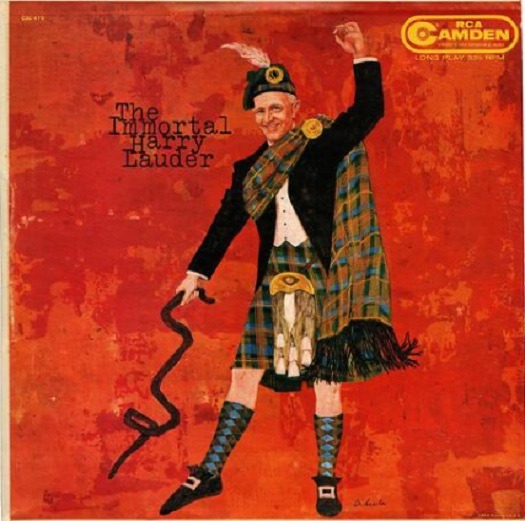
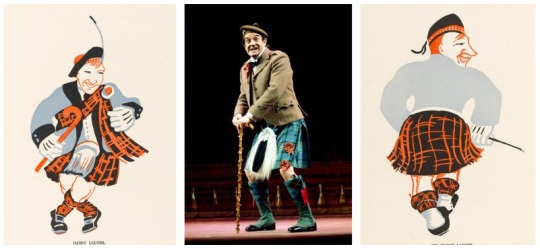
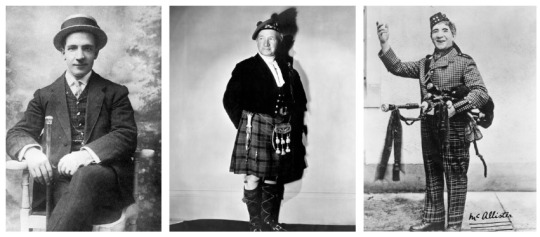
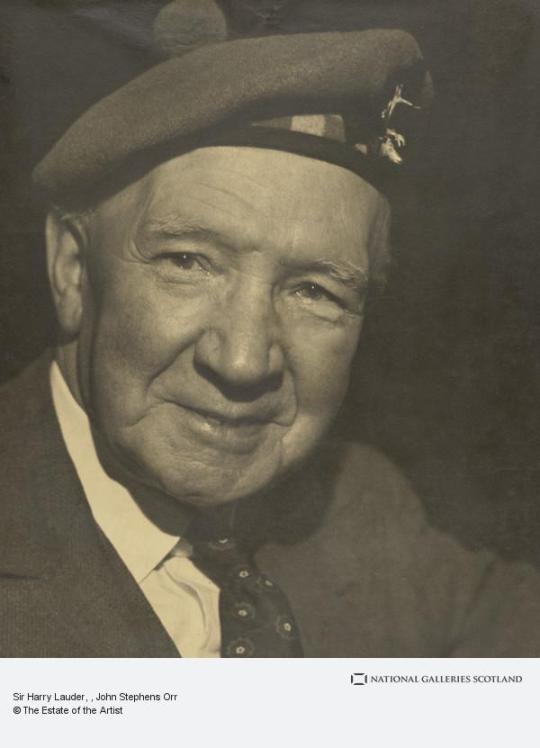
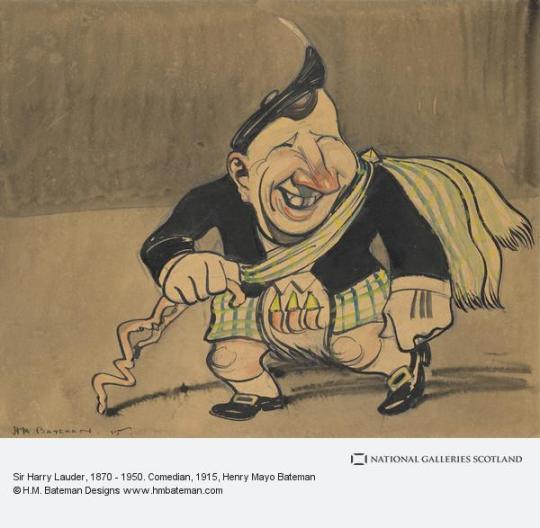
On 26th February 1950 the entertainer and songwriter, Sir Harry Lauder, died.
Born in Portobello,the first of seven children. His father died in 1882 and their mother moved them up the coast to the village of Arbroath where he worked in the mills aged just 12 before spending ten years in the coal mines after the family went to Hamilton, South Lanarkshire.
Lauder often sang to the miners in Hamilton, who encouraged him to perform in local music halls. While singing in nearby Larkhall, he received 5 shillings—the first time he was paid for singing. He received further engagements including a weekly "go-as-you please" night held by Mrs. Christina Baylis at her Scotia Music Hall/Metropole Theatre in Glasgow. She advised him to gain experience by touring music halls around the country with a concert party, which he did. The tour allowed him to quit the coal mines and become a professional singer. Lauder concentrated his repertoire on comedic routines and songs of Scotland and Ireland.
Lauder's range varied, from When I Get Back Again to Bonnie Scotland to Roamin' in the Gloamin'. He frequently took his act abroad, touring the United States no fewer than 22 times, in addition to tours to other English-speaking countries, e.g. Australia and South Africa.
During World War One Lauder worked tirelessly to organise and recruit performers for shows given to troops serving abroad. His own son, Captain J.C. Lauder, was killed on the Somme shortly before New Year 1917.
Despite his son's death he continued to publicly rally support for the war, ending each of his wartime shows with his theme tune, Keep Right on to the End of the Road. He once again entertained the troops on the outbreak of the Second World War in 1939.
13 notes
·
View notes